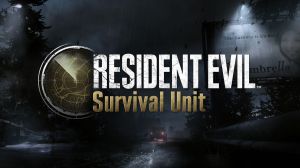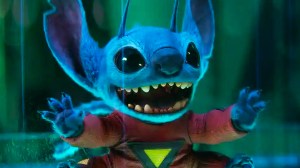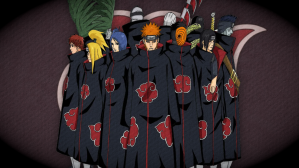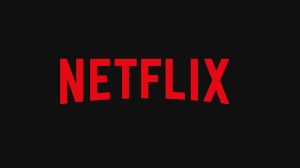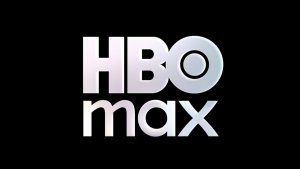As any horror fan can tell you, a film’s visuals are only one important component of terrifying audiences, as a film’s score is another key fixture when it comes to helping craft the mood and set the tone of the experience, either alerting you to incoming threats or amplifying the intensity of what we’re seeing on screen. While the early days of horror saw composers lean into more traditional techniques and gothic sounds, the ’70s and ’80s brought in a wave of synth soundtracks, while the ’90s and ’00s embraced more contemporary music that had built-in connections with audiences.
Videos by ComicBook.com
For the new Netflix film Night Teeth, composers Drum & Lace and Ian Hultquist brought together all of these seemingly disparate approaches into a geographically inspired mixtape of music, blending together traditional composition techniques with hip-hop vibes to capture the concept of driving around Los Angeles with a couple of vampires.
In Night Teeth, to earn some extra cash, quirky college student Benny (Jorge Lendeborg, Jr.) moonlights as a chauffeur for one night. His task: drive two mysterious young women (Debby Ryan and Lucy Fry) around Los Angeles for a night of party hopping. Taken captive by his clients’ charm, he soon learns that his passengers have their own plans for him — and an insatiable thirst for blood. As his night spins out of control, Benny is thrust into the middle of a clandestine war that pits rival tribes of vampires against the protectors of the human world, led by his brother (Raúl Castillo), who will stop at nothing to send them back into the shadows. With sunrise fast approaching, Benny is forced to choose between fear and temptation if he wants to stay alive and save the City of Angels.
ComicBook.com caught up with Drum & Lace and Hultquist to talk about the collaboration process, their influences, and dream projects. You can also check out an exclusive track from the film’s soundtrack below, “Good Morning Mr. Perez,” which is available on October 20th.
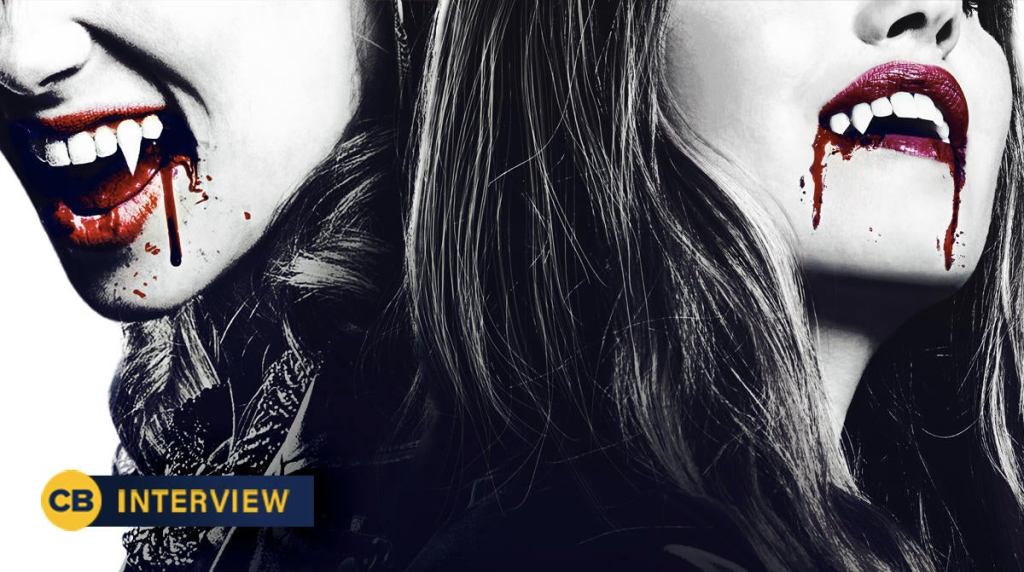
ComicBook.com: Before getting involved in this project, what were your own personal connections to the horror world? Were you fans already and did you have particular favorite films?
Drum & Lace: What’s funny is that horror is one of those, it might be the genre that I resonate with the most. I mean, there are no movies that make me feel the way that horror makes me feel. The good and the bad and, that all this to say that, I’m not a horror connoisseur, per se, but I do appreciate every once in a while getting a scare.
Ian Hultquist: You don’t watch that many scary movies.
Drum & Lace: I feel like I watched, what’s it called, El Orfanato, The Orphanage, years and years ago. That might’ve been one of the most scarring movies I’ve ever seen. I remember in high school watching, not super hard but, The Mothman Prophecies or something like these psychological horror movies. All this to say that I’m not a huge, huge horror watcher, I do really enjoy working in horror.
Now with Night Teeth and then we also work together on I Know What You Did Last Summer and I’m currently signed on to do two horror movies in the next year. Then I worked on a movie called Deadly Illusions that is campy but touches on horror. Personally, I’ve really been enjoying this newfound love for horror.
Hultquist: You like creating horror but not experiencing horror.
Drum & Lace: The music is what’s the scariest. I feel like, when you’re watching it, when you’re in charge of the scare in a way, it’s different.
Hultquist: I think, for me, starting in middle school maybe, I got really into reading Stephen King and then seeing a lot of the films that existed around that time. So the original Carrie, the original IT, Cujo, and then when Scream came out, that changed my world. I was obsessed. I dressed as Ghostface for way too many Halloweens in a row, as a child. My parents didn’t send me to get help.
I’ve always been a really big fan. I feel it’s really, actually, we were talking about this earlier today. I feel the horror genre has really changed over the years and I feel, maybe diluted sounds like a negative word, but it’s just branched out a bit more and a lot of new projects that are coming out, us included, the things that we work on included, are being branded as “horror” that aren’t necessarily the horror that I grew up with but it’s maybe the evolution of it.
Then score-wise, again, everything I just listed, the music in those films made the atmosphere feel as heavy and scary as it was. Obviously, people won’t see this, but we’re surrounded by synthesizers. So John Carpenter’s work in the horror world is definitely a big inspiration for me.
Drum & Lace: Obviously like Goblin, Suspiria, especially being Italian and growing up seeing a lot of Dario Argento horror. Honestly, even hearkening back to The Omen trilogy. I think that there’s some parts of more traditional instruments that we keep in mind when we score stuff that then we just translate onto synths. For this one, in particular, I want to say that what we stayed away from was trying to sound too Stranger Things, because I think that that’s definitely become a thing when people associate horror-ish…
Hultquist: If you say “synth” and “horror,” they’re like, “Oh, Stranger Things.”
Drum & Lace: Yeah, and we wanted this to be a little bit more, I don’t want to say “aggressive” for Night Teeth, but just a little bit more contemporary maybe.
Hultquist: I feel this score and this was a clear intention from the start from our director, Adam Randall, was to have the score feel like a hip hop production record.
Drum & Lace: Yeah, like a mixtape.
Hultquist: Actually, any moments that we went too Gothic horror-sounding with the score, we were always told to peel it back. We’d come back and be like this pop world, more or less. It’s an interesting film because of that.
It is interesting because just looking back, I feel Candyman in 1992, Phillip Glass’s score was the last of the ’80s synth records and then everything after that was just soundtrack compilations. What popular artists studios could get for Scream, I Know What You Did Last Summer, Disturbing Behavior. “How can we make hits from these soundtracks?” And now it’s come back to It Follows and Stranger Things, as you’ve mentioned, are John Carpenter worship. So what was that balance like for the two of you? Was it entirely left up to the two of you creatively of when to lean more into the hip hop and when to lean more into the traditional synth? Or was that through the collaboration process with the director?
Drum & Lace: I think it was a little bit of both. I think that they did a decent job at temping the movie for us. I think it was always very obvious and very clear that the needle drops in the film were going to be really important and we knew the genre and stylistically what they were leaning towards for that. So I think we just tried to go between the things that were already in place there. We listened to the temp and saw how it helped the scene, but then I think we tried to make it our own. Ian had written a demo for a bunch of scenes for Night Teeth, actually, before I was brought on and there’s some sounds that he’d come up with that are still in there. They’re really primordial and animalesque sounding.
Hultquist: These weird vocal loop things that we use for the character of Victor.
Drum & Lace: I messed around with modular synths and just made some really weird sounds that then were samples of other things. I think that we organically found the middle ground and Adam Randall was really helpful in telling us from the beginning what he didn’t like and what he did like. I think that just grew from there.
Hultquist: It was definitely a big collaborative process that stayed between everyone, Netflix included. This is our first time where a studio really wanted to be involved in the music side of things, which can always go one way or the other, but I think, thankfully, it was actually really helpful for us just because everyone that was working on this film cared about it so much and really had a clear vision of what they wanted it to be. It was cool having — we were having bi-weekly meetings with everybody just to talk about our music, which I think sounds stressful but it actually, we got used to it and then when we finished, I was saying, “Oh no, we’re not going to see other. We’re all done.”
For readers who sound like they might be intrigued by the score for Night Teeth but potentially not interested in the film itself, just the music, do you remember any of the temp tracks that were used to help inform them about the style of music and overall tone of what you accomplished with your score?
Hultquist: I think part of the reason that we ended up getting the gig is because they had gone through so many different temp music to try out. They landed on my score for Assassination Nation and they’re, “Oh, this makes sense to us and it feels like it’s the right guiding point for the score it could be.” So it was a lot of having to replace us, which is actually not as easy as it sounds, because you don’t want to do the same thing and I feel that that score for Assassination is very distinctive and we wanted Night Teeth to really live on its own.
I know with film editors, they can have their process of, “No, add three frames” or, “Subtract five frames.” It’s super precise and I feel music is just as important but it’s hard to necessarily say, “Oh, well, could you just remove that note or change up this note?” What is that back and forth like between you and Netflix and the director to really fine-tune what the final product is going to sound like?
Drum & Lace: Like Ian mentioned, this is really the first time that we had people really, really paying attention to the score. I mean, people always pay attention, but I feel this was a new level of minutiae and there were actually a few notes sometimes being, “Oh, can we take out that bass ARP note?” Or, “Can we move this over?” Really, really, really specific, which throws you off at first, because you’re not used to people being that specific, but at the same time, it’s nice, instead of being, “Oh, I don’t know, this doesn’t work here,” and not giving specifics. There was really a handful of tunes that went through a lot of revisions. For a lot of them, we were all able to be happy with versions one or two but a few went in versions five or more.
Hultquist: Six, seven, eight.
Drum & Lace: I think, ultimately, also because everyone was at home because we worked on this movie throughout, we didn’t work with anyone in person. I think everyone just had the time to sit and watch the things over and over. Whereas, if we’d been in person, I think that maybe some things wouldn’t have been caught as much. But all in all, the process was just we’d go through the score reviews and then we would take the notes and just send the revisions back and it would just be a back and forth.
Hultquist: It’s just like any collaboration, it’s a matter of learning to trust each other and be used to it and figure out a language that everyone understands because, obviously, a lot of people in the film world will give opinions on music or without knowing how to actually talk about music. So you’re always dissecting the conversation a bit and, by the end, I feel we all understood each other really well, but every time we start this process on any project, it’s always the director says this but I think they actually mean this.
Drum & Lace: Yeah, and then the other thing, obviously as composers, is we’re here to amplify whatever the director’s vision is. So, ultimately, it’s always also a matter of figuring out that dynamic of yes, we’re collaborators, but also, ultimately, you’re calling the shots kind of thing. So as Ian said, that’s always a balance to find but I think by the end it was really great and we all now have letterman jackets that say “Night Teeth” on them. So I think everyone really got along. It was great.
Was there a particularly challenging sequence to craft the music for, whether it be because there was a lot of back and forth between you and the other folks involved or just the filmmaker didn’t necessarily know exactly the tone that they wanted for a specific sequence?
Drum & Lace: I think there’s two spots. But it’s the opening credits.
Hultquist: The opening credits where you’re introduced to Benny, our main character. We went through a lot of revisions but we never strayed too far from our original idea for it. It was just a matter of fine-tuning over and over and over.
Drum & Lace: And I think the character of Benny is this happy-go-lucky … The director and everyone involved really wanted him to stand out as this naive, “Huh, what am I doing here?” character. Whereas the rest of the movie is very much the action and horror. So it was hard to make something super major. I think our first version was just super dark and broody and minor and they’re like, “No, no, no, no, that’s the rest of the movie we need, this character’s moment needs to be this.” That was hard also because it, in our mind, I think the first time we watched it is the moment when you’re, “Oh, this is totally going to be a song.” Then they were, “Oh no, no, no, these three minutes are a score” and we’re, “Oh, okay”
Hultquist: I feel if there’s any other film, they would have been a song. I love the filmmakers for this, that they insisted it be score because it made us push ourselves but that was definitely a tricky one.
There’s a big fight scene later in the film. That takes place in Venice.
Drum & Lace: That’s insane. Venice Beach.
Hultquist: That track was just bonkers. Our V1 was already insane and then by the time we got to the final, it was just madness. There’s so much going on. Adam, our director, would just be, “More, bigger, crazier.”
Drum & Lace: If you look at the audio wave, it was just a block. To the point that you’re thinking, “Is he listening on laptop speakers? How is he not hearing that?” I think it’s this really big moment and his biggest note was always to make things more propulsive. Hopefully we did an okay job. I mean, we got it finally got approved.
When you were first getting into the mindset of working on the project, do you immerse yourself in your favorite music, your favorite vampire movies? What do you do to get in that head space or do you just watch Night Teeth itself over and over and over again until those ideas start coming together?
Hultquist: We stick with the film in front of us.
Drum & Lace: I think both of our downfalls often, which is especially on the work that we do separately, where then the other person can come in like an unbiased person, but you just can’t get stuck thinking too much about references. You have to stop listening to everything else so that you can just focus on, whether it’s the script or the scenes that you have. I think we watched it a ton with having a cue sheet out and you get to finally actually see the chunks that you need to do. I think we just focused on different reels.
Hultquist: If anything, I think the goal was to make it not feel like a vampire film. Because I think that’s one of the fun things about this story is that it starts off and it continues to be just this crazy night out in Los Angeles that happens to have vampires in it that ruined everything. So we just wanted to stay with that. We’re in Benny’s mindset of him just falling into the lap of this crazy underworld and not knowing what to do with himself.
Drum & Lace: And these vampires are very different from the Interview With The Vampire, Dracula, all of the films that you know. So I think that that was the other thing, too. It’s less that they’re vampires and more like they’re deathly cool folks in town.
Whether it be the world of horror or whether you want to expand to just any franchise, do you have a dream collaborator, filmmaker, writer, property that, if the chance came about, you would just do anything to work with?
Drum & Lace: I feel the obvious thing is the Ari Asters of the world. Obviously, people who are pushing limits. I feel, what were they called, would make some great horror. They did a movie with Adam Sandler, that’s crazy with the jewelry?
Hultquist: Oh, the Safdie brothers?
Drum & Lace: Yeah, I feel the Safdie brothers would make some really good horror.
Hultquist: I mean, Uncut Gems kind of is a horror movie.
Drum & Lace: I feel there’s so much untapped potential out there. I don’t know. There’s so many old-school horror makers. I don’t really know. I mean, I feel I’m excited to be working with the two people that I am working with on horror stuff right now. I don’t think I can say much more than that because it’s still early stages. Sorry!
Hultquist: I’ve done two horror films with my friend Alistair Legrand and I’d really love to make a third. So that’s mine. Alistair, make another movie.
Drum & Lace: Or it may be cool to work on Pan’s Labyrinth 2.
Hultquist: With Guillermo del Toro in there?
Drum & Lace: Yeah, the not well-known director Guillermo del Toro.
Night Teeth hits Netflix on October 20th. The film’s soundtrack will also be available on October 20th.
This interview has been edited for length and clarity. You can contact Patrick Cavanaugh directly on Twitter.


